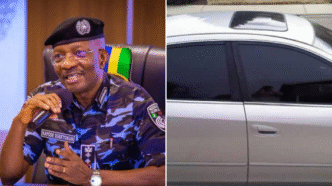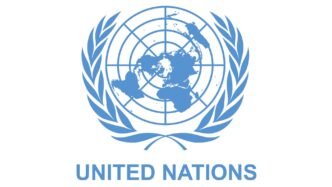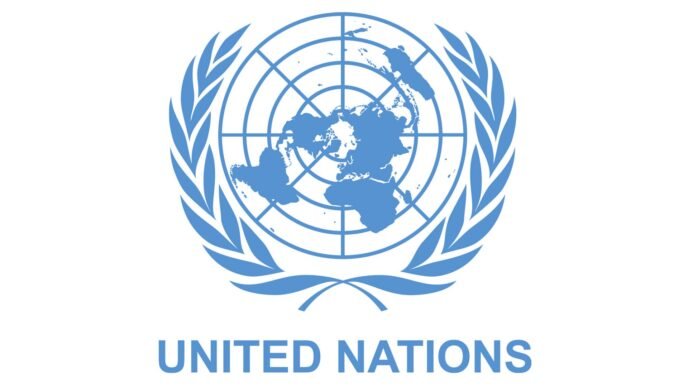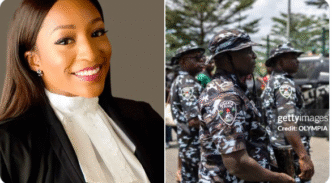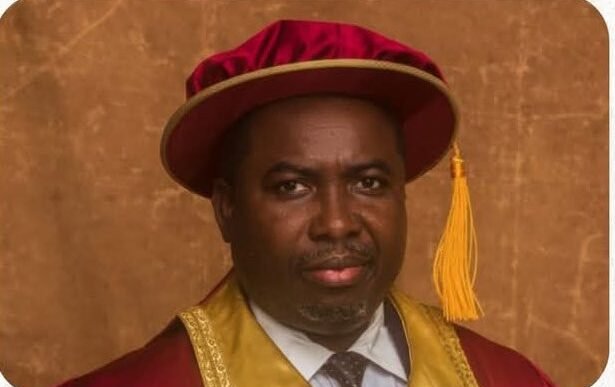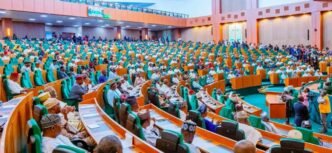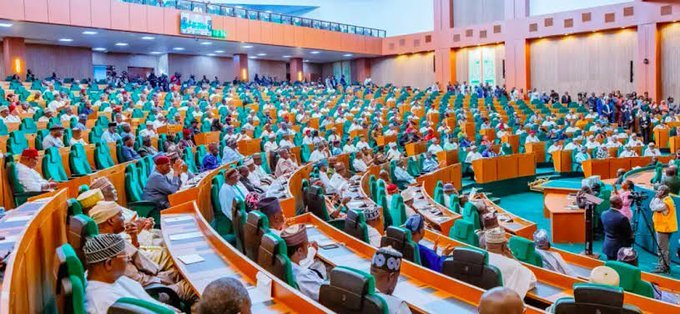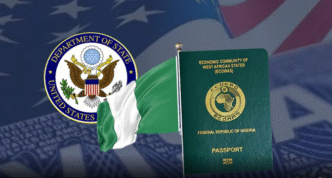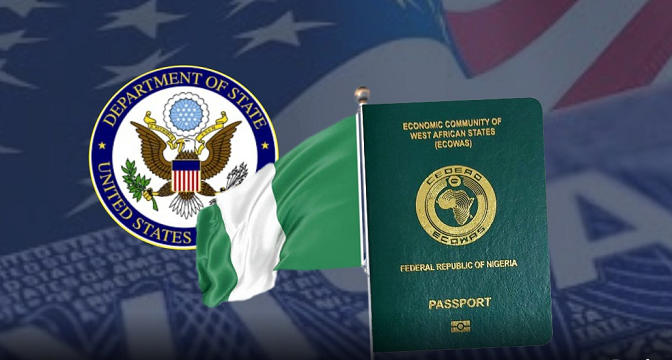BREAKING: IGP Egbetokun Suspends Enforcement of Tinted Glass Law Pending Court Hearing
By [Reporter’s Name], Abuja
The Inspector-General of Police (IGP), Kayode Egbetokun, has temporarily suspended the enforcement of the Motor Vehicles (Prohibition of Tinted Glass) Act, 1991, following ongoing consultations with key stakeholders and pending the determination of a case before the Federal High Court in Warri, Delta State.
The decision, formally announced in a statement by the Force Public Relations Officer (FPRO), CSP Benjamin Hundeyin, on Thursday, comes amid growing public debate, legal concerns, and calls for clarity over the scope and fairness of the tinted glass enforcement policy.
According to the statement, the suspension was reached after a crucial meeting between the IGP and a delegation of the Nigerian Bar Association (NBA) led by its President, Afam Osigwe (SAN), at the Force Headquarters in Abuja.
Background: The Controversy Over the Tinted Glass Law
The Motor Vehicles (Prohibition of Tinted Glass) Act, enacted in 1991, restricts the use of tinted or shaded vehicle glasses that obscure visibility into the interior of cars. The law was introduced as a security measure to prevent crimes such as kidnapping, armed robbery, and smuggling of contraband.
Under the law, no person is allowed to operate a vehicle with tinted glasses without prior approval from the Office of the Inspector-General of Police. Violation of the Act can attract arrest, impoundment of the vehicle, and prosecution.
However, the enforcement of the law has long been controversial. Critics have often accused law enforcement officers of harassment, extortion, and abuse of power during roadside checks under the pretext of enforcing the regulation.
The issue resurfaced prominently in 2024 and 2025, following a renewed nationwide clampdown by police commands targeting vehicles with factory-fitted or aftermarket tinted windows.
The Meeting Between Police and the Bar
Thursday’s statement by CSP Benjamin Hundeyin revealed that the IGP’s decision followed “a robust and productive discussion” with the leadership of the Nigerian Bar Association.
The meeting, according to the Force Headquarters, centered on two main issues:
- The legal validity and process of enforcing the tinted glass law, and
- The need for cooperation between the Nigeria Police Force (NPF) and the Nigerian Bar Association (NBA) in promoting public confidence, accountability, and respect for the rule of law.
Hundeyin stated that while the Police recognize the importance of the 1991 law in addressing security concerns, there is a need to strike a balance between enforcement and citizens’ rights.
“The Inspector-General of Police, Kayode Egbetokun, after due consultation and out of consideration for the interest of Nigerians, has directed the temporary suspension of the enforcement of the Motor Vehicles (Prohibition of Tinted Glass) Act, pending the hearing of a motion on notice scheduled for October 16, 2025, at the Federal High Court in Warri, Delta State,” the statement read in part.
The FPRO added that although there is currently no court injunction restraining the police from carrying out enforcement, the IGP’s decision was taken as a voluntary act of good faith and a demonstration of respect for the Nigerian Bar Association and the Nigerian public.
NBA Commends IGP’s Decision
In his remarks, NBA President Afam Osigwe (SAN) commended the Inspector-General for his “responsive leadership” and willingness to engage constructively with the legal community.
He noted that the Association had received numerous complaints from motorists across the country who alleged harassment, intimidation, and extortion under the guise of tinted glass checks.
“The IGP’s decision to suspend enforcement pending judicial clarification is a welcome step toward protecting citizens’ rights while maintaining national security,” Osigwe said.
“The NBA will continue to collaborate with the Nigeria Police Force to ensure that the rule of law prevails and that law enforcement is carried out in accordance with due process.”
Osigwe also urged citizens to remain law-abiding and to cooperate with law enforcement while awaiting the court’s determination on the matter.
Why the Suspension Matters
The suspension of the tinted glass law enforcement is significant for several reasons:
1. Legal Clarity
The case before the Federal High Court in Warri seeks to clarify whether certain aspects of the Motor Vehicles (Prohibition of Tinted Glass) Act are still enforceable under current conditions, especially with the widespread use of factory-tinted windows in modern vehicles.
Legal experts argue that many cars today come with factory-installed tints designed for sun protection and privacy — not necessarily for concealment. This has created a gray area in enforcement, as most vehicle owners do not possess individual clearance permits from the Police.
2. Public Confidence and Human Rights
The enforcement of the tinted glass law has often been associated with allegations of extortion and human rights abuses. Many Nigerians have shared experiences of being stopped at roadblocks, detained, or coerced into making payments despite having legitimate reasons for owning factory-tinted cars.
By suspending the exercise, the Police leadership appears to be signaling a new approach that prioritizes public trust and rule of law over arbitrary enforcement.
3. Rebuilding Institutional Credibility
The move may also help rebuild the Police’s image as an institution capable of self-correction and public accountability. Observers note that the IGP’s proactive engagement with the NBA contrasts with past eras when law enforcement decisions were often unilateral and resistant to public input.
4. Pending Court Case
The Federal High Court in Warri is expected to resume hearing on October 16, 2025, on a motion seeking judicial interpretation of the provisions of the 1991 Act and their compatibility with Nigeria’s 1999 Constitution (as amended).
Until then, the Police have agreed to pause all enforcement activities related to tinted glass violations.
Public Reaction
The decision has been widely welcomed across social media and civil society circles, with many Nigerians expressing relief that the long-debated enforcement will be halted temporarily.
Motorists and transport unions hailed the suspension as a “breath of fresh air,” urging the Police to use the window of suspension to review and modernize the permit system to align with global automotive standards.
Legal analysts, however, caution that the suspension is temporary, and citizens should not interpret it as a total repeal of the law. They emphasize that only the National Assembly or the courts can alter or nullify the Act itself.
Meanwhile, some security analysts argue that the government should ensure any new policy balances privacy rights with national security imperatives, especially given Nigeria’s ongoing battle against terrorism, banditry, and organized crime.
A Brief History of the Tinted Glass Permit Controversy
The issue of tinted glass enforcement has been recurring for over two decades.
- 1991: The law was enacted during the military regime to curb crimes facilitated by vehicle concealment.
- 2017: The Police under then-IGP Ibrahim Idris began issuing digital tinted glass permits to streamline the process.
- 2021: Under IGP Usman Alkali Baba, the Police suspended the issuance of new permits due to widespread forgery and misuse.
- 2024: The enforcement returned as part of nationwide security operations, triggering fresh public backlash.
The latest suspension by IGP Egbetokun marks another major development in the ongoing attempt to balance law enforcement with citizens’ rights and practical realities of vehicle ownership.
Looking Ahead: Next Steps
With the court hearing slated for October 16, all eyes are now on the Federal High Court in Warri to determine the next legal direction for the controversial regulation.
Should the court uphold the existing law, the Police may resume enforcement but under revised guidelines to prevent abuse and improve transparency. However, if the court rules parts of the law unconstitutional or outdated, it could pave the way for legislative reforms of the 1991 Act.
In the meantime, motorists have been advised to drive responsibly and ensure that any tint on their vehicles does not excessively obscure visibility or contravene existing safety standards.
Conclusion: A Temporary Relief Amid Legal Uncertainty
The temporary suspension of the enforcement of the Motor Vehicles (Prohibition of Tinted Glass) Act, 1991, represents a moment of reflection for both law enforcement and citizens.
While the Nigeria Police Force insists that the law remains vital to national security, its willingness to pause enforcement demonstrates an evolving understanding of accountability and democratic dialogue.
Whether the court upholds, modifies, or nullifies the law, one thing is clear: the outcome will shape how Nigeria navigates the delicate intersection between security, privacy, and civil rights in the years ahead.

